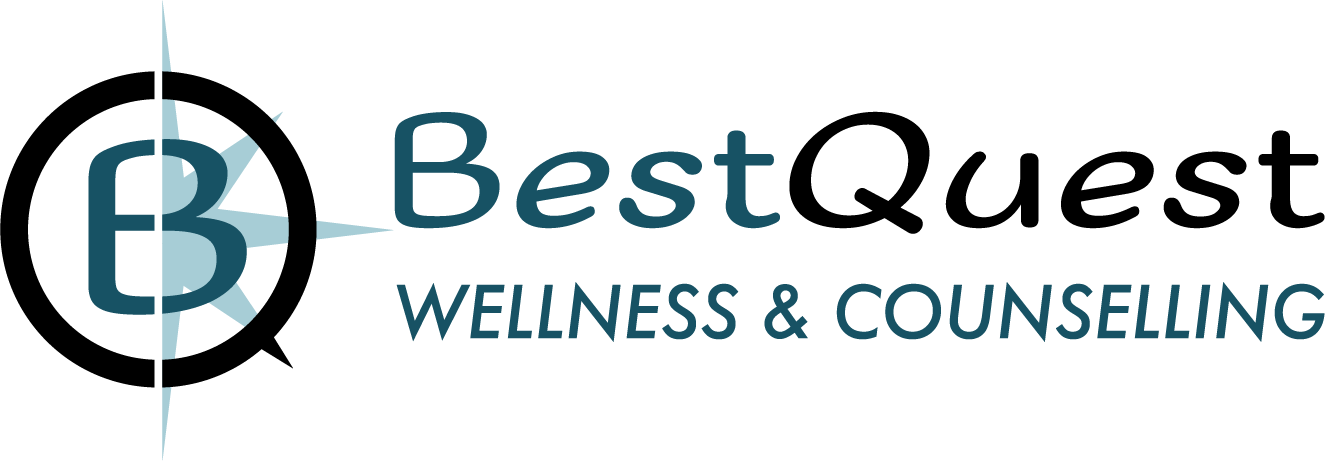Discover the transformative power of validation in relationships. Learn why we all crave to be seen, heard, and understood – and how to provide this for others.
We all have a deep, universal need to be seen, heard, and validated. It’s a fundamental human desire that drives much of our behavior and interactions. Yet, the art of validation is one of the most underrated and underutilized relationship skills.
When we feel truly validated by another person – when they listen to us without judgment, empathize with our experience, and let us know that our thoughts and feelings matter – it can be a transformative experience. It helps us feel accepted, understood, and valued for who we are.
On the flip side, the lack of validation can be incredibly damaging to our self-esteem, mental health, and the quality of our relationships. When we feel invisible, dismissed, or misunderstood, it can leave us feeling lonely, isolated, and questioning our own worth.
In the intricate tapestry of human relationships, the act of validation often takes a backseat to more overt gestures of care and concern. Yet, validation is a cornerstone of emotional intimacy and understanding. This article delves into the significance of validation, exploring why it is one of the most underrated relationship skills and how it can transform interpersonal dynamics.
What is Validation?
Validation is the acknowledgment and acceptance of another person’s thoughts, feelings, and experiences. It is the act of affirming that someone’s emotional responses are legitimate and worthy of understanding. Unlike fixing, which aims to solve problems, validation seeks to create a safe space where individuals feel heard and valued.
The Psychology Behind Validation
Validation taps into fundamental human needs for recognition and connection. According to Maslow’s Hierarchy of Needs, the need for love and belonging is crucial for psychological well-being. Validation satisfies this need by fostering a sense of acceptance and emotional security.
Why We Crave Validation
At the core of our desire for validation is a deep-seated need for connection and belonging. As social creatures, we have an innate drive to be accepted and valued by others. Validation fulfills this need by signaling to us that we matter, that our experiences and perspectives are valid, and that we are worthy of love and respect.
Beyond this, validation also plays a crucial role in our personal growth and development. When we feel validated, it gives us the confidence to be vulnerable, to take risks, and to embrace our authentic selves. It reassures us that we are not alone in our struggles and that our feelings are justified.
Conversely, the lack of validation can stunt our personal growth and lead to a range of negative outcomes, such as:
- Low self-esteem and self-doubt
- Difficulty expressing emotions and communicating effectively
- Reluctance to take chances or pursue our goals
- Reliance on external validation to feel worthy
- Strained or dysfunctional relationships
The Difference Between Fixing and Validation
While both fixing and validation are forms of caring, they serve different purposes. Fixing focuses on resolving issues, often through advice or action. Validation, on the other hand, emphasizes empathy and understanding without necessarily offering solutions.
When Fixing Falls Short
- Overemphasis on Solutions: Constantly offering solutions can make the other person feel unheard or dismissed.
- Emotional Disconnect: Fixing can create an emotional gap, as it may overlook the underlying feelings that need acknowledgment.
- Dependency: Relying solely on fixing can foster dependency, where one person becomes the perpetual problem-solver.
The Power of Validation
- Emotional Bonding: Validation strengthens emotional bonds by showing that you value the other person’s feelings.
- Empowerment: It empowers individuals to process their emotions and find their own solutions.
- Conflict Resolution: Validation can defuse conflicts by reducing defensiveness and fostering open communication.
The Art of Validation
Providing validation to others is not about offering advice, solutions, or even agreement. It’s about being present, actively listening, and conveying that you understand and accept the other person’s experience.
Here are some key principles of effective validation:
- Suspend judgment: When someone shares their thoughts or feelings with you, resist the urge to criticize, correct, or offer unsolicited advice. Instead, approach the conversation with an open and compassionate mindset.
- Acknowledge and empathize: Use verbal and nonverbal cues to show that you’re listening and that you understand what the other person is going through. Phrases like “I can see how that would be really difficult for you” or “That must have been so frustrating” can go a long way.
- Validate the emotion, not the behavior: It’s important to recognize that someone’s feelings are valid, even if their actions or choices may not be. You can validate the emotion (“I understand why you’re so upset”) without condoning the behavior (“but lashing out at your partner wasn’t the best way to handle it”).
- Avoid minimizing or dismissing: Avoid phrases like “It’s not a big deal” or “At least it’s not as bad as…” as these can invalidate the other person’s experience and make them feel unheard.
- Ask curious questions: Demonstrate your genuine interest in understanding the other person’s perspective by asking open-ended questions that invite them to share more. This shows that you care about their experience and want to learn more.

How to Practice Validation
Active Listening
Active listening is the foundation of validation. It involves fully concentrating, understanding, responding, and remembering what the other person is saying.
- Maintain Eye Contact: This shows that you are engaged and interested.
- Nod and Use Verbal Cues: Simple gestures like nodding or saying “I see” can encourage the speaker to continue.
- Avoid Interrupting: Let the person finish their thoughts before responding.
Reflective Responses
Reflective responses involve paraphrasing or summarizing what the other person has said to show that you understand their perspective.
- Paraphrasing: “It sounds like you’re feeling…”
- Summarizing: “So, what you’re saying is…”
Empathy Statements
Empathy statements validate emotions by acknowledging the feelings behind the words.
- Acknowledge Feelings: “I can see that you’re really upset about this.”
- Express Understanding: “It makes sense that you would feel this way.”
The Power of Validation in Relationships
Implementing the art of validation can have a profound impact on our relationships, both personal and professional. When we make the effort to truly listen, empathize, and validate the experiences of others, it creates an environment of trust, mutual respect, and emotional intimacy.
In romantic relationships, validation can help partners feel seen, heard, and supported, fostering deeper connection and understanding. In family dynamics, validation can ease tensions, improve communication, and strengthen the bonds between loved ones. In the workplace, validation can boost morale, increase employee engagement, and foster a more collaborative and positive work culture.
Ultimately, the power of validation lies in its ability to meet our universal need for belonging and acceptance. By making the conscious choice to validate others, we not only improve our own relationships but also contribute to a more empathetic and understanding world.
The Impact of Validation on Relationships
Romantic Relationships
In romantic relationships, validation can deepen emotional intimacy and trust. It creates a safe space for partners to express their vulnerabilities and strengthens the emotional connection.
Friendships
Validation fosters mutual respect and understanding in friendships. It helps friends feel valued and supported, enhancing the overall quality of the relationship.
Family Dynamics
In family settings, validation can bridge generational gaps and improve communication. It encourages open dialogue and reduces misunderstandings.
FAQs:
Q: Why is validation so important in relationships?
A: Validation is important because it fulfills our fundamental need to feel seen, heard, and accepted. When we feel validated, it fosters trust, intimacy, and a deeper sense of connection with others.
Q: How can I better validate the people in my life?
A: Some key ways to validate others include: suspending judgment, actively listening, acknowledging their emotions, avoiding minimization, and asking curious questions to better understand their perspective.
Q: What happens when we don’t receive validation?
A: The lack of validation can lead to a range of negative outcomes, such as low self-esteem, difficulty communicating, and strained relationships. It’s important to address this need in a healthy way.
What is the difference between validation and fixing?
Validation focuses on acknowledging and understanding emotions, while fixing aims to solve problems. Validation creates emotional connection, whereas fixing can sometimes lead to emotional disconnect.
Why is validation important in relationships?
Validation is crucial for emotional intimacy and trust. It helps individuals feel heard, valued, and understood, strengthening the overall quality of the relationship.
How can I practice validation in my daily interactions?
You can practice validation by actively listening, using reflective responses, and making empathy statements. These techniques show that you value and understand the other person’s feelings.
What are some common barriers to validation?
Common barriers to validation include cultural norms, personal biases, and emotional triggers. Being aware of these barriers and striving for self-awareness can improve your validation skills.
How can validation improve conflict resolution?
Validation can defuse conflicts by reducing defensiveness and fostering open communication. It helps individuals feel understood, making it easier to find mutually agreeable solutions.
Conclusion:
In a world that often prizes quick solutions and superficial interactions, the power of validation stands out as a transformative relationship skill. By making the conscious choice to listen, empathize, and convey that someone’s thoughts and feelings matter, we can cultivate deeper connections, build trust, and contribute to a more understanding and compassionate society.
So the next time someone shares their experience with you, resist the urge to fix or judge, and instead focus on validating their feelings. You may be surprised by the profound impact it can have on your relationships and your own personal growth.
Gratitude to Cecilia Yeung, RCC for this contribution.







